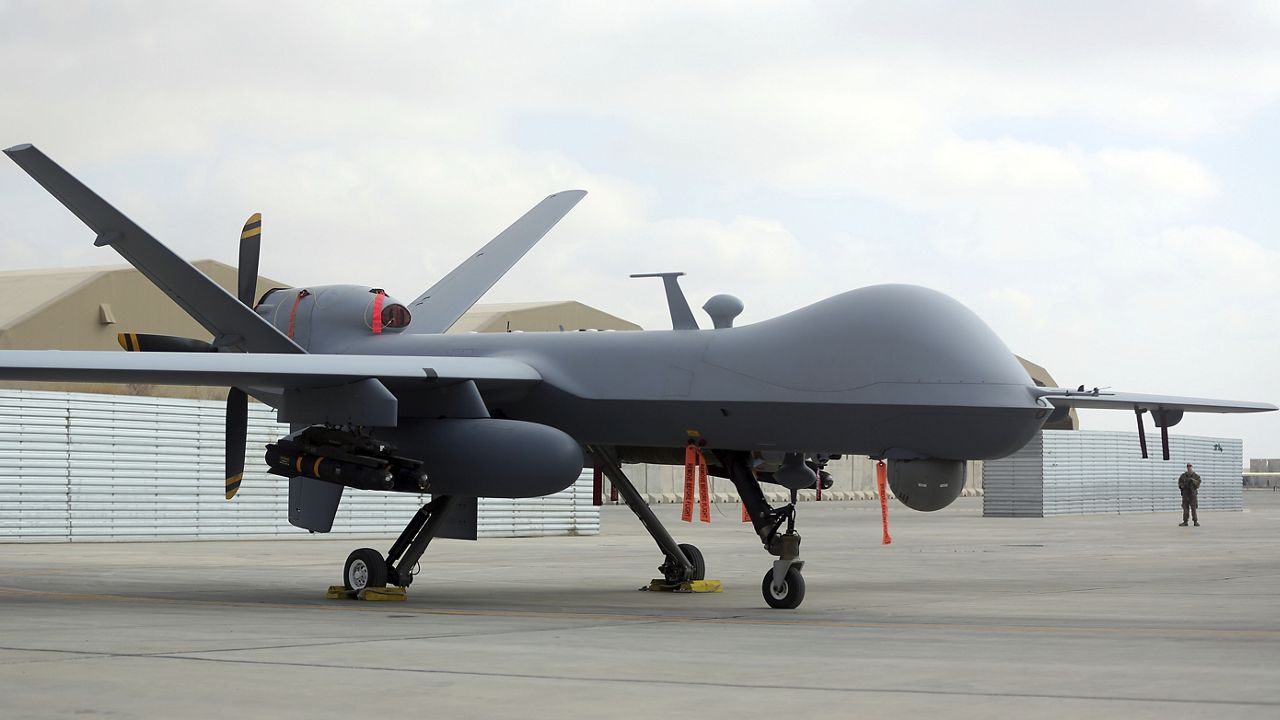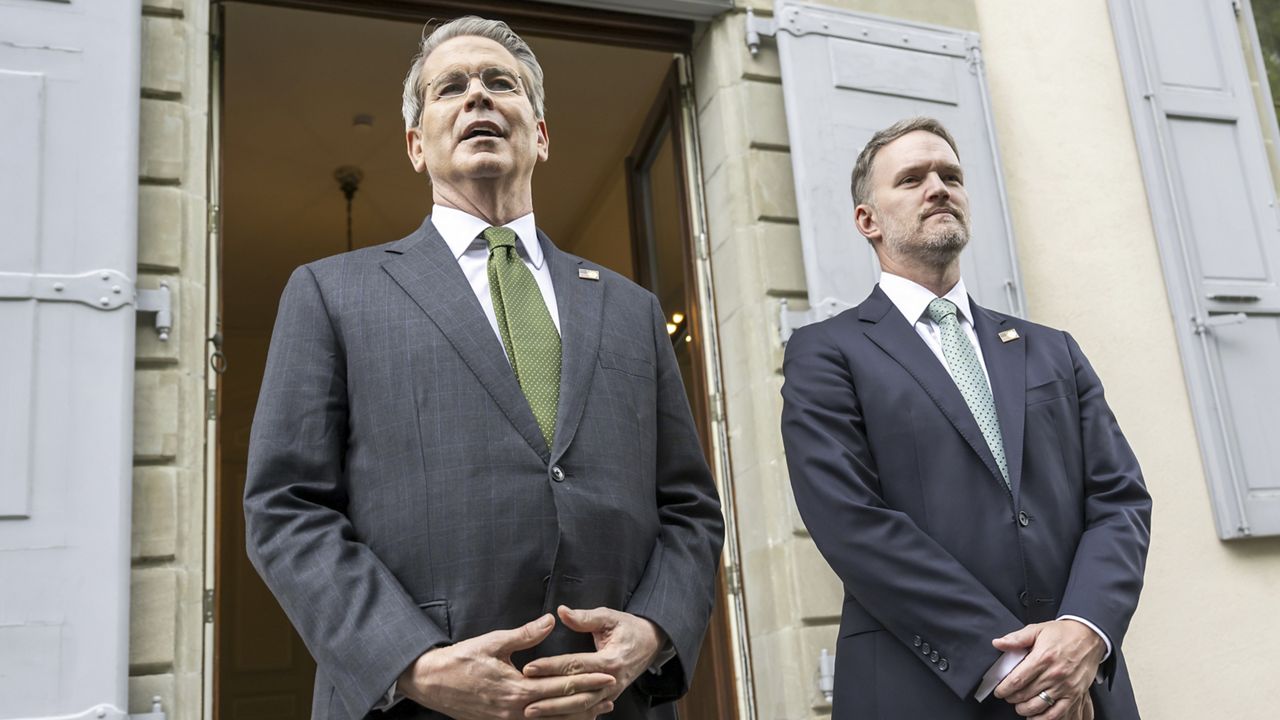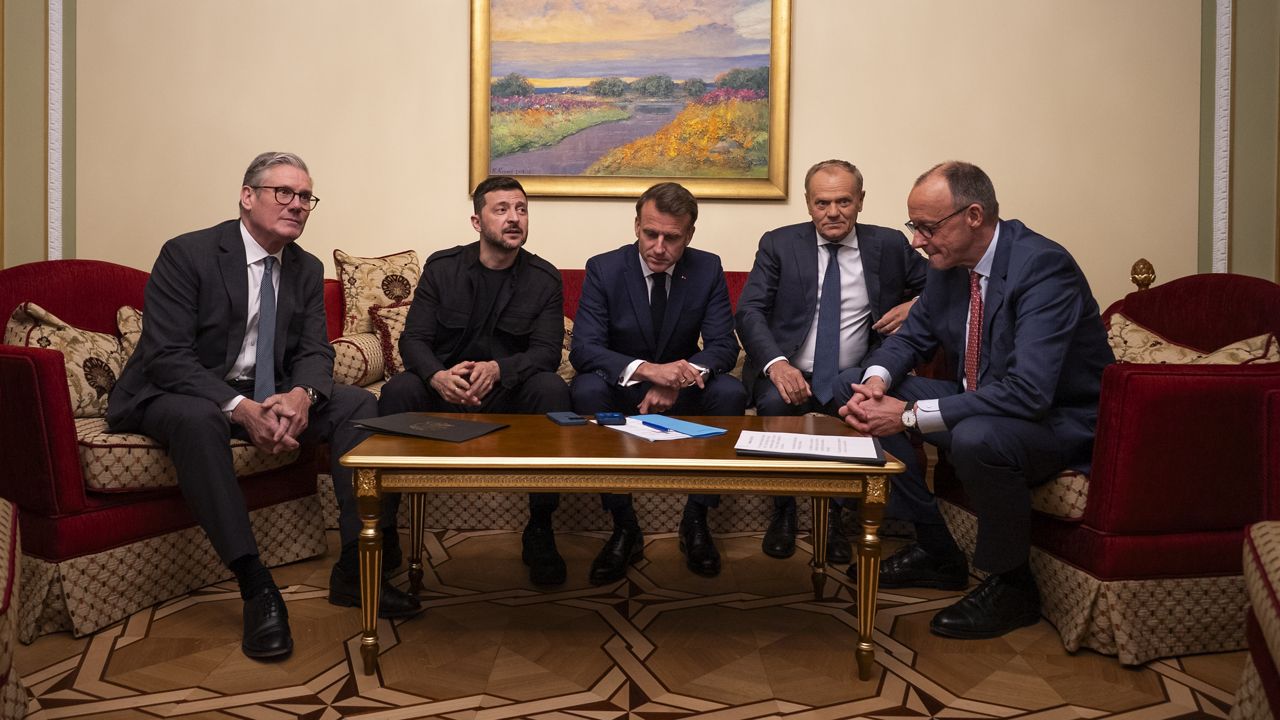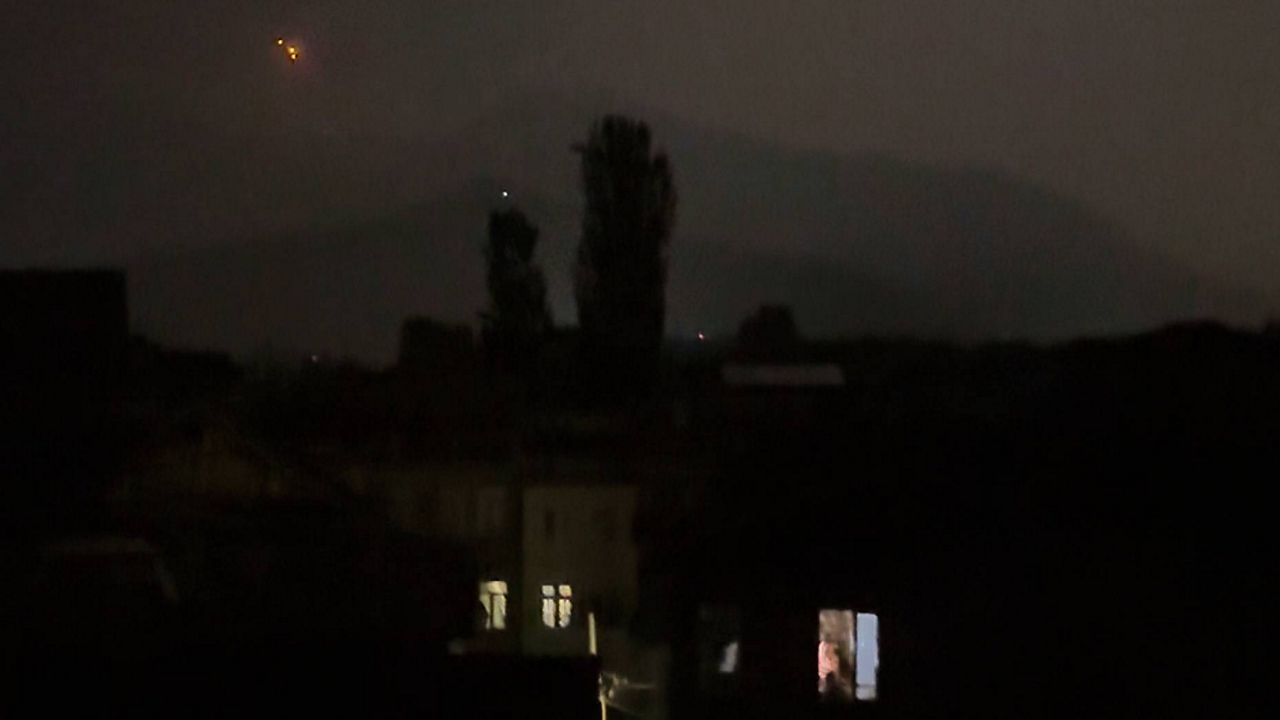A Russian fighter jet collided Tuesday with a U.S. Air Force drone flying in international airspace over the Black Sea, causing the unmanned aircraft to crash into the water below, U.S. European Command said in a statement.
What You Need To Know
- A Russian fighter jet collided Tuesday with a U.S. Air Force drone flying in international airspace over the Black Sea, causing the unmanned aircraft to crash into the water below, U.S. European Command said in a statement
- Prior to the collision, two Su-27 planes dumped fuel on and flew in front of the American aircraft “in a reckless, environmentally unsound and unprofessional manner,” the U.S. said
- The U.S. said Tuesday’s incident follows a pattern of dangerous actions by Russian pilots when interacting with aircraft operated by the U.S. and its allies over international airspace, include the Black Sea
- The Russian defense ministry claimed the drone crashed into the water after a sharp maneuver
Two Russian Su-27s approached the MQ-9 drone, and around 7 a.m. Central European Time (noon Eastern), one of the Russian planes struck the propeller of the drone, causing damage that forced the U.S. to crash the drone in the water.
Prior to the collision, the Su-27s dumped fuel on and flew in front of the American aircraft “in a reckless, environmentally unsound and unprofessional manner,” the European Command statement said.
The drone was on an intelligence, surveillance and reconnaissance mission, U.S. officials said.
“Our MQ-9 aircraft was conducting routine operations in international airspace when it was intercepted and hit by a Russian aircraft, resulting in a crash and complete loss of the MQ-9,” said U.S. Air Force Gen. James Hecker, who is commander of U.S. Air Forces Europe and Air Forces Africa. “In fact, this unsafe and unprofessional act by the Russians nearly caused both aircraft to crash.”
The Black Sea is located south of Ukraine and west of Russia.
The U.S. said Tuesday’s incident follows a pattern of dangerous actions by Russian pilots when interacting with aircraft operated by the U.S. and its allies over international airspace, include the Black Sea.
“These aggressive actions by Russian aircrew are dangerous and could lead to miscalculation and unintended escalation,” European Command said.
John Kirby, spokesman for the National Security Council, told reporters that Russian intercepts of U.S. aircraft over the Black are not uncommon — including others in recent weeks — “but this one obviously is noteworthy because of how unsafe and unprofessional it was — indeed reckless that it was — and causing the downing of one of our aircraft.”
The Russian defense ministry said the U.S. drone was flying near the Russian border and intruded into an area declared off limits by Russian authorities. It said the Russian military scrambled fighters to intercept the drone, which it claimed crashed into the water after a sharp maneuver.
Pentagon press secretary Brig. Gen. Pat Ryder said U.S. official are continuing to assess what the intentions of the Russian pilots might have been, but he added, “I think the actions speak for themselves.”
Ryder said U.S. officials believe the Russian aircraft involved in the collision landed successfully. He added that Russia is not believed to have recovered the American drone and he could not say if the U.S. would be able to retrieve it from the sea.
Hecker said U.S. and allied aircraft will continue to operate in international airspace and “we call on the Russians to conduct themselves professionally and safely.”
Added Kirby: “If the message is that they want to deter or dissuade us from flying and operating in international airspace over the Black Sea, then that message will fail because that is not going to happen.”
President Joe Biden was briefed on the incident by national security adviser Jake Sullivan, according to White House National Security spokesman John Kirby. He added that U.S. State Department officials would be speaking directly with their Russian counterparts and “expressing our concerns over this unsafe and unprofessional intercept.”
State Department spokesman Ned Price called it a “brazen violation of international law.” He said the U.S. summoned the Russian ambassador to lodge a protest and the U.S. ambassador to Russia, Lynne Tracy, has made similar representations in Moscow.
In Washington, Congressional leaders in both parties railed against Russia's actions, blasting what they called a "reckless act" that could lead to escalation in the conflict.
Senate Majority Leader Chuck Schumer, D-N.Y., called Tuesday's incident "another reckless act by President [Vladimir] Putin and his military."
"I want to tell Mr. Putin stop this behavior before you are the cause of an unintended escalation," he warned.
"This brazen act by Russian pilots against an American aircraft flying in international airspace makes clear that Vladimir Putin is an adversary," Mississippi Sen. Roger Wicker, the top Republican on the Senate Armed Services Committee, told reporters. "This incident should serve as a wake-up call to isolationists in the United States that it is in our national interest to treat Putin as the threat he truly is."
Wicker's comments came hours after a number of prospective 2024 Republican White House hopefuls, like Florida Gov. Ron DeSantis and former President Donald Trump, expressed that the conflict between Russia and Ukraine is not vital to the country’s national interests.
"Putin wants nothing more than to push the United States away from our support of Ukraine and prevent us from rolling back his destructive policies," Wicker added in a Twitter post. "We must choose to project strength against our adversary, not appease this dictator with words or so-called ‘de-escalation.'"
The Associated Press contributed to this report.
Ryan Chatelain - Digital Media Producer
Ryan Chatelain is a national news digital content producer for Spectrum News and is based in New York City. He has previously covered both news and sports for WFAN Sports Radio, CBS New York, Newsday, amNewYork and The Courier in his home state of Louisiana.








